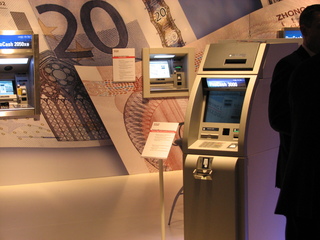Dragon Oil and Petronas to Yield Their Shares in Turkmen Projects to Russia's Zarubezhneft and Itera
Published:
19 October 2003 y., Sunday
Western companies have been contemplating whether to accept or reject Ashkhabat's offers to develop the hydrocarbon reserves on the Turkmen shelf of the Caspian Sea. Turkmenistan has insisted that its 32 blocks totaling over 70 thousand square kilometers contain 16.5 billion tons of oil equivalent. Investors are daunted not only by the insufficient extent of the blocks' exploration but also by the absence of export prospects. Dragon Oil and Petronas are showing investors one way out of this blind alley with their plan to concede their project shares to the Russian company Zarubezhneft and international gas trader Itera in exchange for access to export trunks.
Russian Zarubezhneft and Itera are planning to set up a joint venture to participate in at least two oil-and-gas projects on the Turkmen shelf of the Caspian Sea. A source close to Zarubezhneft executives told RusEnergy.com that these are projects to develop the Cheleken Block and the neighboring Block-1. A little earlier, Zarubezhneft CEO Nikolai Tokarev affirmed it in an interview to the Oil & Capital magazine (№ 11 - 2001). Official representatives of the operators, however, refuse to confirm the existence of the deal with Russian companies.
An agreement on the Russian joint venture unifying the projects will be signed in the coming months, a source in Zarubezhneft reports. The joint venture will allegedly acquire an unspecified part of the present participants' shares. Currently, these projects are already being implemented in accordance with the production sharing agreement (PSA) between Turkmenistan and foreign companies. Dragon Oil is the Cheleken operator with its controlling stock owned by the United Arab Emirates (through the Emirates National Oil Company). Malaysia's Petronas is the operator of the Block-1 development project.
The intention of the Zarubezhneft-Itera alliance to join the projects has received an enthusiastic response from both foreign companies and Turkmen authorities. After meeting with the heads of the Russian companies Turkmenistan's president Saparmurat Niyazov declared his support of their plans.
Šaltinis:
RusEnergy.com
Copying, publishing, announcing any information from the News.lt portal without written permission of News.lt editorial office is prohibited.
The most popular articles
 Business to get a break under streamlined EU VAT rules.
more »
Business to get a break under streamlined EU VAT rules.
more »
 Thales UK`s naval business has yesterday signed a major sub-contract with Finning (UK) Ltd for the supply of propulsion engines and machinery for its new Lithuanian warship reactivation programme.
more »
Thales UK`s naval business has yesterday signed a major sub-contract with Finning (UK) Ltd for the supply of propulsion engines and machinery for its new Lithuanian warship reactivation programme.
more »
 The EU Budget 2009 provides more money for growth, the environment, jobs, research and food aid for developing countries.
more »
The EU Budget 2009 provides more money for growth, the environment, jobs, research and food aid for developing countries.
more »
 On day one of the World Economic Forum in Davos, the mood of this traditionally bullish event -- pure gloom.
more »
On day one of the World Economic Forum in Davos, the mood of this traditionally bullish event -- pure gloom.
more »
 In December 2008 against December 2007 the turnover of retail trade enterprises decreased by 8.8 per cent.
more »
In December 2008 against December 2007 the turnover of retail trade enterprises decreased by 8.8 per cent.
more »
 Mexican financial institution Banco Santander has awarded Wincor Nixdorf AG a contract to service all 4,000 of its ATMs installed in Mexico.
more »
Mexican financial institution Banco Santander has awarded Wincor Nixdorf AG a contract to service all 4,000 of its ATMs installed in Mexico.
more »
 Wincor Nixdorf AG spent much of its time at this year's Wincor World demonstrating how Wincor Nixdorf can support financial institutions and retailers through innovation.
more »
Wincor Nixdorf AG spent much of its time at this year's Wincor World demonstrating how Wincor Nixdorf can support financial institutions and retailers through innovation.
more »
 South Korea may be feeling the chill wind of recession but the country's lucrative gambling industry is cashing in.
more »
South Korea may be feeling the chill wind of recession but the country's lucrative gambling industry is cashing in.
more »
 Modest revenue growth despite difficult economy; announces cost management initiatives.
more »
Modest revenue growth despite difficult economy; announces cost management initiatives.
more »
 Tens of thousands of export firms on China's seaboard have closed due to falling demand in major European and North American markets.
more »
Tens of thousands of export firms on China's seaboard have closed due to falling demand in major European and North American markets.
more »